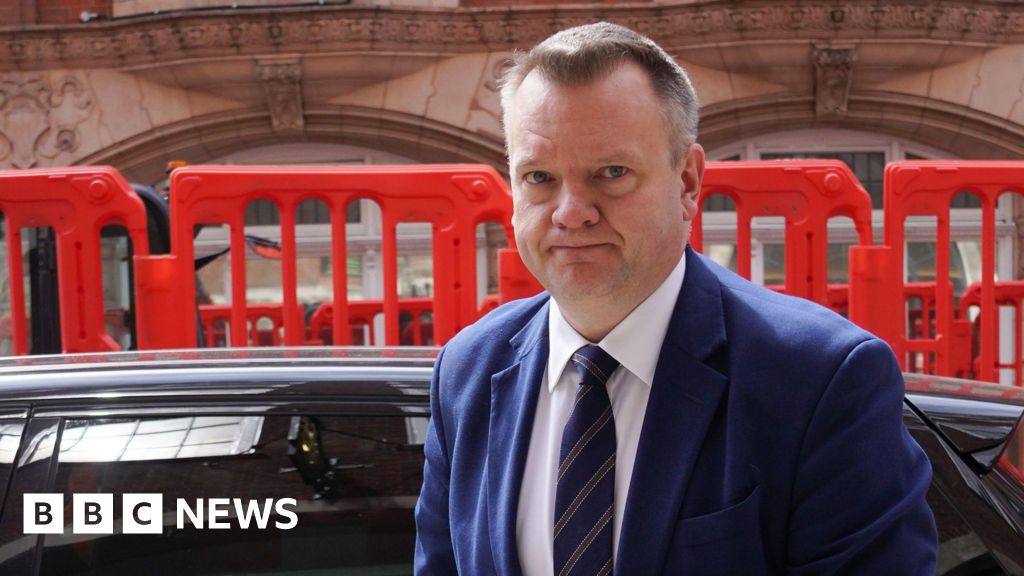ARTICLE AD BOX
By Catherine Burns
Health Correspondent
Image source, Getty Images
Image caption,The cancer guidance has reduced the mentions of men and women
Leading doctors say they have concerns about the NHS reducing mentions of the word "women" in ovarian cancer guidance.
They say "it may cause confusion" and create barriers to care.
But NHS Digital, which writes the online advice, said they wanted to make it relevant for everyone who needs it.
The updated guidance now says that people with ovaries, such as trans men, can also be affected.
Health Secretary Sajid Javid has said he is "looking into" why the guidance has removed some uses of the word "women".
Until February, the NHS guidance began by explaining ovarian cancer was "one of the most common types of cancer for women".
The words "woman" or "women" were used at least 10 times over six pages of advice on the cancer.
Now, the only specific mention of women comes on the third page with the explanation that ovarian cancer can affect "women, trans men, non-binary people and intersex people with ovaries".
The changes were introduced to make the advice more relevant and inclusive. Previous versions did not mention that people who were born as women but now identify differently, for example as trans men, can also be affected by ovarian cancer.
'Language matters'
The Royal College of Obstetricians and Gynaecologists, which represents thousands of women's health specialists and pregnancy doctors, said the language used "does need to be appropriate, inclusive and sensitive to the needs of individuals whose gender identity does not align with the sex they were assigned at birth".
But it added: "Limiting the term 'woman' to one mention may cause confusion and create further barriers for some women and people trying to make an informed choice about their care.
"We would therefore support the use of the word 'woman' alongside inclusive language."
When asked about the changes on Sky News, Mr Javid said it was important to have "common sense" and "use the right language so that we can give people the best possible patient care".
He added: "It's important that when messaging is given to people for cancers that words like "women" and "men" are used, so that people know who you're talking about."
The guidance on cervical cancer has also changed to reduce mentions of women.
Mr Javid said: "Believe it or not, there are women out there that don't realise when you're talking about cervixes that you are talking about women."
He also highlighted prostate cancer as a disease affecting only "those who are biologically male".
The NHS information on prostate cancer still uses the word "men" a number of times. Meanwhile the NHS advice on penile cancer has changed, to remove some mentions of the word "men".
It now says "men, trans women, non-binary people and intersex people with a penis" can develop this rare cancer.
'Be specific'
A spokeswoman for LGBTQ+ charity Stonewall said healthcare guidance must be clear and understandable, but where possible "the use of inclusive language matters, because it helps support LGBTQ+ people to access healthcare and may ultimately save lives".
She added: "Gendered and inclusive language are not mutually exclusive, and this is obviously reflected by the fact that the guidance does in fact use the word "women"."
Cancer Research UK said "to see this step towards more inclusive language" was positive "but it's also important to be specific about who could be affected".
Its senior health-information manager Karis Betts said: "Cancer can affect anyone, so we want to ensure people can see themselves reflected in health information."
An NHS Digital spokesman said: "We have updated the pages as part of our routine review of web pages to keep them in line with the best clinical evidence, and make them as helpful as possible to everyone who needs them."
The NHS constitution, which sets out the principles on which the health service runs, explains that it aims to be available to all "irrespective of gender, race, disability, age, sexual orientation, religion, belief, gender reassignment, pregnancy and maternity, marital or civil partnership status".
Related Internet Links
The BBC is not responsible for the content of external sites.

 2 years ago
109
2 years ago
109








 English (US) ·
English (US) ·